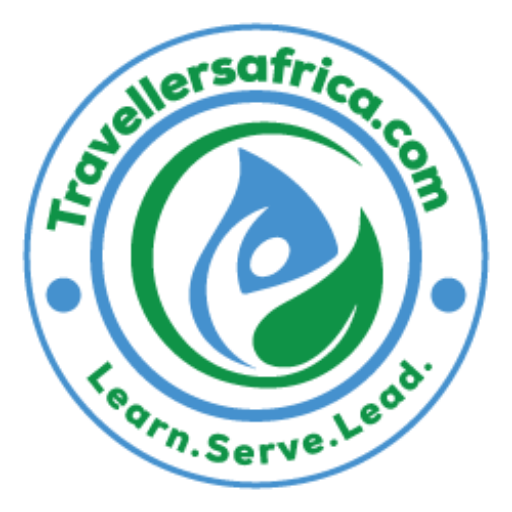TEACHING PROGRAM PLACEMENT IN TANZANIA
Facts About This Program
- Maasai villages close to Arusha
- From 2 Weeks
- Working Days in a Week 5-6 Days.
- Host Family
- From $ 500
- START Anytime
Building Volunteer Projects in Tanzania
Travellers Africa’s English Teaching programme in Tanzania aims to provide local schools and orphanages with support in a variety of ways, helping to teach children English, Math and other subjects, at the same time transferring skills and sharing cultural perspectives. No previous teaching experience is required.
All you need is to be creative and proactive and we will help you settle into a role that will be beneficial to the children you work with, while gaining valuable skills yourself.
There is much need for extra help in Tanzanian schools. However, it is very important to know
where and how to give support. We do not support government schools as this interferes with the local education system and may reduce the incentive for the government to improve its own educational system, whilst also disrupting the work of the local teachers.
In general we support locally based schools, trying to provide an education to those that would otherwise go without. We currently have volunteer positions at teaching project for children of all ages. The nursery schools are run by local organizations trying to prepare the children for primary school by teaching them basics such as reading, writing, Math’s, Swahili and English.
Projects working with older children are providing an education to orphaned and disadvantaged children, who otherwise would not be able to attend school. We do not agree with placing unskilled people into teaching positions, replacing local teachers or disrupting the work of the local teachers. Local teachers are teaching at all of these schools and rather than replace them, we try to enhance their work by taking extra classes and activities, dividing large classes and helping give more individual attention to the children. Volunteers can also help with one on one tuition for children falling behind.
One of the common difficulties for children in Tanzania is that primary school is taught in Swahili and secondary school in English. This is obviously a difficult transition; therefore much assistance is required to help children build their English.
Along with formal teaching there are opportunities to pass on other skills to children, such as drama, singing, music, gardening, hygiene and human rights. Volunteers run skills training and health/life skills tasks at a few projects.
You do not need to be a teacher to help with teaching positions. You can still be a valuable
asset when volunteering as a teacher’s assistant, activities director or offering one on one
tuition. Other aspects of teaching projects include work with children with learning difficulties,
street children and young people on remand. Vocational skills are particularly valuable for
these.
Volunteers work as assistants to the local teachers, although there maybe times you need to
lead your own lessons due to staff shortages. All lessons are taught in English apart from Swahili language lessons. The schools have a basic curriculum, which is followed; however volunteers have the freedom to introduce new ideas/topics. It is important that volunteers spend an hour or two each day preparing for the following days lessons.
We support primary and secondary schools. Furthermore, many of the orphanages we support have nursery schools for children of pre-school age – Travellers Africa’s volunteers also assist at these projects. Nurseries and primary schools are suitable for volunteers with no teaching experience. If you have teaching experience or a TEFL qualification, then it is recommended that you teach at a secondary school where the children are aged from 12 to 16 years of age.
The schools in Arusha shut during the months of April, August and December each year. During this period we run sports camps for orphaned and vulnerable children. This is a free programme where kids can come and play in a supervised environment. Volunteers will have the opportunity to take classes in football, dance, fitness, swimming (depending on the time of the year), martial arts and yoga. We try and take this opportunity to integrate some Basic English teaching into the sessions as well as teaching the kids about health, hygiene and important lifeskills.
In addition, we also run English tuition classes at the Volunteer House for disadvantaged children in the local community. Volunteers work with smaller groups offering more personal English training to the children. Lastly, a number of schools in the area have different timetables to the main schools that we support. Some schools will be open during this period so there will still be some classroom based teaching work available for you. Overall, there are teaching opportunities throughout the year!
On-arrival into Tanzania you will need to obtain a Tourist Visa. This costs $50 ($100 for US Citizens). You do not need to worry about this in advance as you can purchase the visa at the airport on-arrival.
Tanzanian law stipulates that all volunteers must have a work permit. If you’re joining TheTravellers Africa’s in Tanzania for less than 90 days then you will need a CTA Work Permit.
This costs $230 (£160). Our local team will process this on your behalf when you arrive in Arusha, So please make sure you have $230 in cash. Our local team will process this for you within the first couple of days of your arrival and return your passport to you with the work permit stamp inside it. Therefore, you do not need to obtain this work permit prior to arriving in Tanzania. If you are volunteering for more than 90 days then the work permit fee is $650 (around £400).
The total visa and work permit fee for the trip is $280 (approximately £180), or $350 for US citizens. You should bring this amount with you to Tanzania in cash (US dollars). The cost would be $600 for volunteers joining us in Tanzania for more than 90 days.
It is also mandatory to have the Yellow Fever Vaccination to enter Tanzania. Therefore, you must ensure you allow yourself plenty of time to arrange this immunization before you go, as you will need to show your Yellow Fever Vaccination record to the immigration officials at the airport. There has been a lot of debate on this issue, as some health officials say it is not necessary to have the Yellow Fever Vaccination. However, from the personal experience of the
Travellers Africa’s team we have always been asked to show proof of our Yellow Fever Vaccination on entry into Tanzania and so strongly advise all our volunteers to do so as well to avoid any complications on-arrival.
More About the Program.
Required
No experience is required for this programme, although teaching experience is useful. You will
need to have a good level of English (although English does not have to be your first language.)
You should also be physically fit, over the age of 17 and looking to make a difference.
Please note that volunteers are expected to carry out English lessons with the children, so it is
important to prepare/lessons and activities in advance. Our local team will assist you in
preparing activities/lessons during your in-country orientation. We have a resources cupboard
at the house where you can find materials to use for your lessons. If you have any teaching
materials you can donate to the programme then these are always greatly appreciated.
Working Hours
You can expect to teach for around 3 to 4 hours per day (Monday to Friday). The classes are not necessarily one after each other, so you may be required to spend the whole working day the project. This is a great opportunity to get to know the teaching staff and children during the
time you’re not teaching.
Volunteer House
You will stay at our Volunteer House in Arusha. This is Edward house located a couple of miles
from central Arusha in a quiet neighborhood. It is a 30-minute walk into town or you can take
public transport, which costs around 25p and takes 15 minutes.
Rooms are shared, up to 6 people per room. Each volunteer is provided with a mosquito net.
The shared bathrooms have warm showers and western toilets. The house has a living area
with a TV and comfy sofas to relax in during the evening. There is also a communal kitchen
where you can prepare meals and store food in the refrigerator. Please note that power cuts
are fairly commonplace in Tanzania although they tend not to last more than a couple of hours.
The house have Wi-Fi but also there are internet cafes nearby where you can get online for
around £1 per hour. Alternatively you can purchase a USB internet dongle for £15 and this will
allow you to connect to the internet at all times via your laptop. A weekly laundry service
available for £3 per person or you can choose to hand wash your clothes. We have a cook who will prepare your meals and a cleaner who will maintain the house. There is also a night guard employed for extra security.
A member of our local team will regularly visit the house to ensure everything runs smoothly.
There is a great atmosphere at the house and you will meet some wonderful people to share
your experience with.
Meals
Volunteers receive breakfast and dinner at the Volunteer House, which are freshly prepared on-site by our cook. Meals are a mixture of Tanzanian and western cuisine. You should budget
around £2 per day for lunch if you plan to eat local meals or £4 to £5 for western food.
Generally, we have a two-week rotating menu, which offers a varied choice of meals. For
breakfast, you will receive cereal, or fruit salad, or boiled eggs, or a Spanish omelet, or
pancakes.
For your evening meal you may have pasta, lentils and chapatti, burgers (beef and veggie), or
banana and potato stew. We will always have a vegetarian option available and can cater for
the majority of dietary requirements.
There are western supermarkets in Arusha where you can purchase food and store it at the
house if you’d like to prepare your own lunch/meals.
Address:
275,Sombetini Road, P.o.box 275, Arusha, Tanzania Phone:+255655707352
Email:
info@travelers Africa.com
Open Hours:
Mon-Sat: 9am - 6pm

